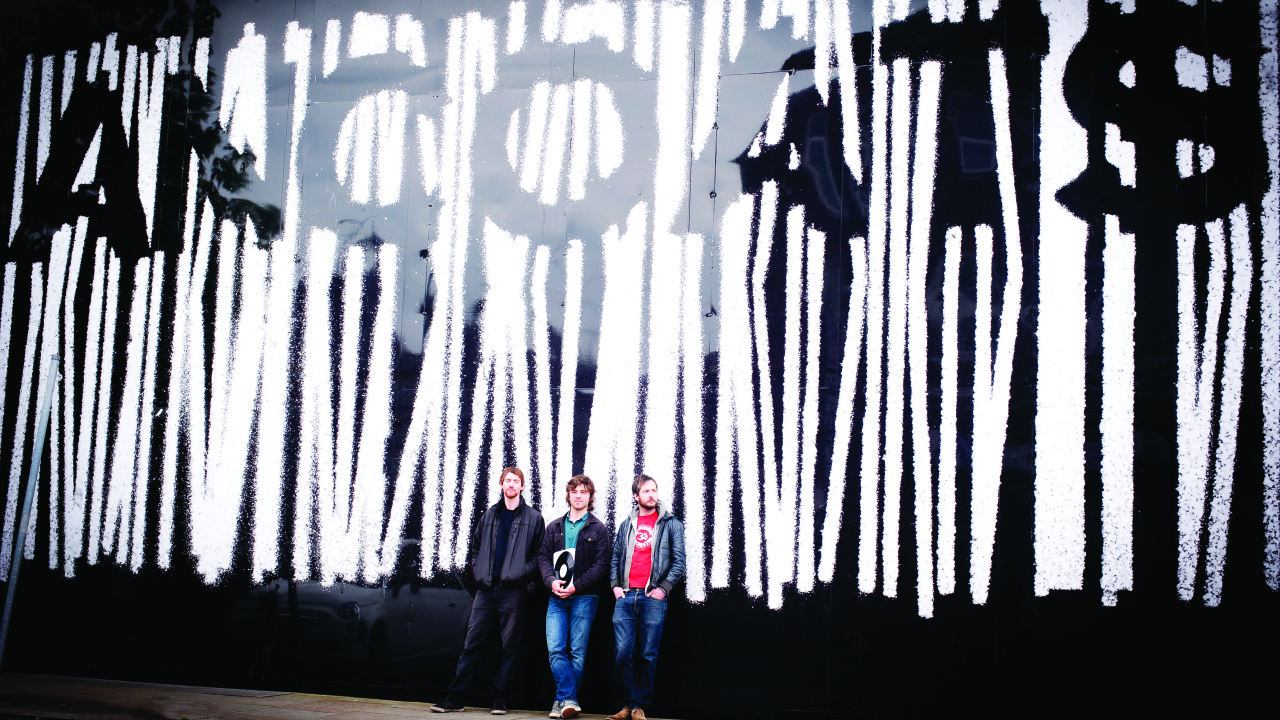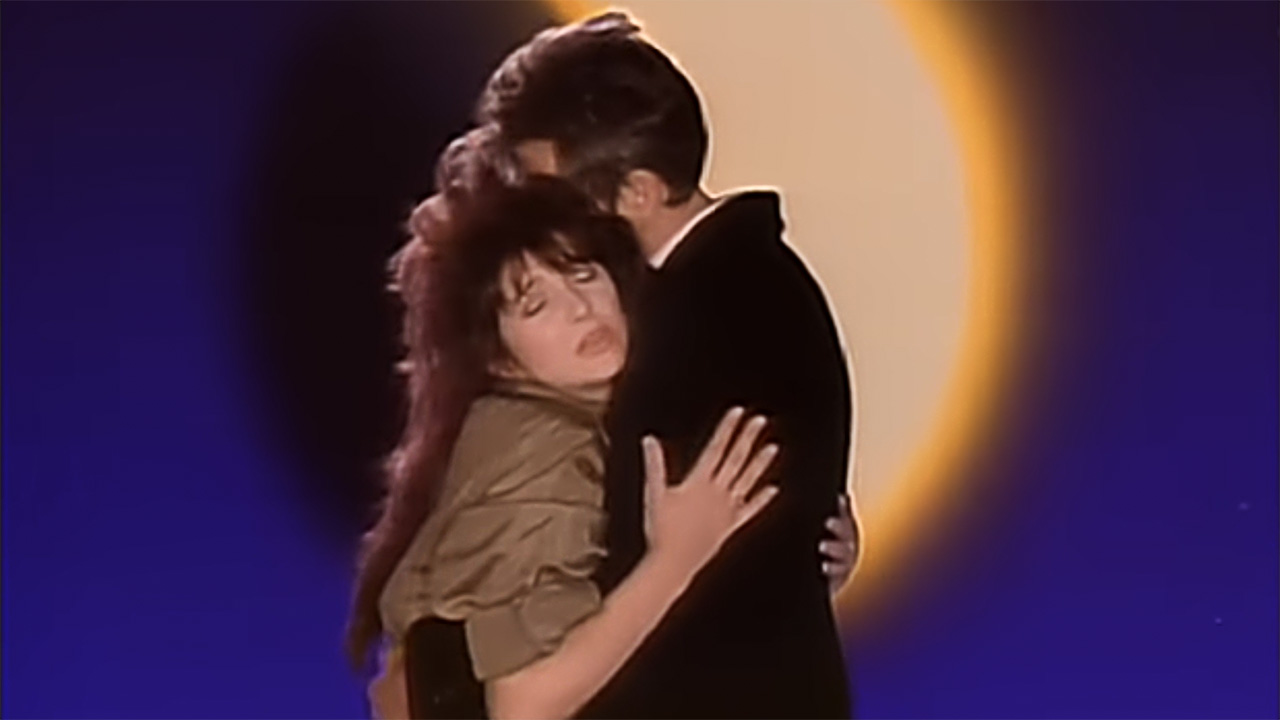Catching The Bug
How do you create concept albums with no vocals or lyrics? Just ask Manchester-based kraut-proggers Plank, whose insect-themed second album takes instrumental music to a whole new level.

Select the newsletters you’d like to receive. Then, add your email to sign up.
You are now subscribed
Your newsletter sign-up was successful
Want to add more newsletters?

Every Friday
Louder
Louder’s weekly newsletter is jam-packed with the team’s personal highlights from the last seven days, including features, breaking news, reviews and tons of juicy exclusives from the world of alternative music.

Every Friday
Classic Rock
The Classic Rock newsletter is an essential read for the discerning rock fan. Every week we bring you the news, reviews and the very best features and interviews from our extensive archive. Written by rock fans for rock fans.

Every Friday
Metal Hammer
For the last four decades Metal Hammer has been the world’s greatest metal magazine. Created by metalheads for metalheads, ‘Hammer takes you behind the scenes, closer to the action, and nearer to the bands that you love the most.

Every Friday
Prog
The Prog newsletter brings you the very best of Prog Magazine and our website, every Friday. We'll deliver you the very latest news from the Prog universe, informative features and archive material from Prog’s impressive vault.
"We were thinking about doing our next album about bacteria. But there’s not much to talk about, is there?” says Dave Rowe, leader of Manchester kraut-proggers Plank, considering how best to follow up their stunning, insect-themed new album Hivemind.
Even for a man of few words like Rowe, this is an understatement. Because Plank don’t actually do any talking at all – they’re an instrumental band, whose music doesn’t have lyrics or vocals. A bit of a handicap, you might imagine, when trying to discuss weighty topics such as the delicate global eco-system and arthropods’ crucial but underappreciated role in it. Then again, when Holst wrote The Planets and Vivaldi penned The Four Seasons, no one asked them which cupboard they’d locked the singer in, did they?
Not that we’re placing Plank on a pedestal alongside the classical greats quite yet, but on Hivemind they’ve managed to employ a blend of insidious Can-like grooves, hyperactive progressive rhythms and evocative synth soundscapes to evoke all manner of creepy-crawly scenarios, from the scuttling instrumental proliferation of Grasshoppers From Mars to the thunderbolts of sludge rock that assault you in Swarm Behaviour.
And while their avowed devotion to Krautrock pioneers such as Neu! (after whose producer, Konny Plank, they even named themselves) is an open secret, you’re just as often reminded of the spooky soundtracks of Goblin (chief musical collaborators of cult horror director Dario Argento), Pink Floyd’s more stoned 70s moments or Tangerine Dream’s spacey, hypnotic electronica. Then there are tracks like Aphidelity, which manage to incorporate a 4⁄4 motorik pulse with snatches of sweeping strings that you most often hear on classic disco records.
It’s a pretty bold move forward for a band that Rowe formed back in 2009 as an outlet through which to indulge his love for adventurous instrumental rock.
“I was listening to a lot of Neu! and Can at the time,” he says, “along with Camel’s The Snow Goose and post-rock like Tortoise and Trans Am. Apart from Zappa and Floyd I like mostly instrumental stuff, so it made sense to do something like that myself.”
He hooked up with bass player Ed Troup and drummer Johnny Winbolt-Lewis to form Plank, and their 2012 debut album Animalism (themed around our farmyard friends) impressed, with its staccato guitar and synth textures allied to hypnotic 3⁄4 time grooves. But Rowe had plans for a bigger sound, and he puts that down partly to a change of personnel: “When (drummer) Liam (Stewart) joined the band (in late 2012) he was really enthusiastic about trying different approaches, and having played with quite a lot of different musicians around Manchester, we met people who could contribute things like violin to the album.”
Sign up below to get the latest from Prog, plus exclusive special offers, direct to your inbox!
“The dynamic changed,” confirms Stewart. “So it took a while for us to find our feet as a different band, while retaining elements of what had gone before. We were definitely up for writing more expansive music that could potentially allow for strings and other instruments to be laid on top. We wanted a textured sound, which we hopefully achieved. But as well as that, we were trying to make a thematic record where it progresses from start to finish, so you feel like you’re going on a journey.”
To that end, a guiding concept was always going to be a useful glue to help the album hang together.
“I just wanted a new theme that could influence the sounds we make,” explains Rowe. “Our first album, Animalism, was kind of a concept album in reverse, because we noticed a theme developing as we wrote the album. But with this one the theme was there fairly early on.”
Around the time initial ideas for Hivemind were coming together, Rowe was reading Franz Kafka’s The Metamorphosis, the classic novella in which the salesman protagonist wakes one day to find himself transformed into an insect. “We liked the idea of a song going through a lot of changes,” explains Stewart, “likening that to the metamorphosis of a butterfly.”
The result covers the whole second side of this unashamedly traditional, made-for-vinyl album, starting with Metamorphosis, a track whose gently awakening symphonic strains are accompanied by the soft chirrup of insects, before building up to a grander, more widescreen evocation of evolving nature. In fact you can easily imagine the tracks that follow, Moth Lover and Waterboatman, soundtracking a Discovery Channel documentary passage in which time-lapse photography shows the various stages of an insect’s transformation.
Adding to the feeling that you’re not listening to this in your front room or on the bus but in a wide-open space are the field recordings and murmurs of overheard conversations subtly woven into the piece.
“That’s the result of growing up listening to The Dark Side Of The Moon,” admits Rowe. “It just gives a slightly new element to a sound. To me that kind of thing really adds to the feel of a record.”
As suggested at the top of this piece, the band have also been playing with the idea of Hivemind as a themed trilogy. So what’s this talk of bacteria?
“Yeah, that’s the idea,” confirms Stewart. “The first one’s Animalism, then Hivemind, so it makes sense to get into even smaller lifeforms.”
“We had this slightly tongue-in-cheek idea of a trilogy,” Rowe says. “But to be honest, I’m not so sure about it now. Maybe we’ll keep to two.”
Oh, you little tease… Whatever happens, though, Plank look set to win plenty of new fans with this record, to add to the cult following they’ve already attracted in Manchester. So what, we’re bound to ask, what is the demographic for instrumental albums about insects?
“We get everyone from 18-year-olds to 60-year-olds,” says Rowe. “We get quite a few men over the age of 30 keen to discuss their favourite prog albums. Which is fine. Wouldn’t mind a few more girls, though!”
Either way, Plank are a captivating enough prospect for prog fans, indie kids and soundtrack geeks alike to enjoy. Just don’t expect them to sing, OK?
“We still get people saying ‘If you’d just have a vocal on this one…’” admits Stewart, “but we always point out that there’s a lot of instrumental music that could be completely ruined if you put a vocal on it.”
And as you’ll discover if you open your ears wide enough, Hivemind is one of them.
_Hivemind is out now on Akoustik Anarkhy. See www.planknation.bandcamp.com for info. _
Johnny is a regular contributor to Prog and Classic Rock magazines, both online and in print. Johnny is a highly experienced and versatile music writer whose tastes range from prog and hard rock to R’n’B, funk, folk and blues. He has written about music professionally for 30 years, surviving the Britpop wars at the NME in the 90s (under the hard-to-shake teenage nickname Johnny Cigarettes) before branching out to newspapers such as The Guardian and The Independent and magazines such as Uncut, Record Collector and, of course, Prog and Classic Rock.

